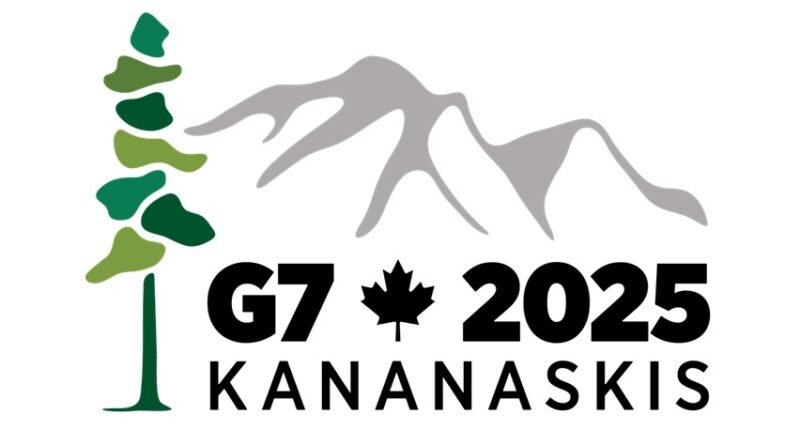G7 Countries: Role, History, Members, and G7 Summit 2025 Overview
Introduction to the G7
The Group of Seven (G7) is a powerful intergovernmental organization consisting of some of the world’s most advanced economies. Established in the 1970s, the G7 has evolved into a key platform where member nations collaborate on pressing global issues such as economic policy, international security, climate change, technological advancement, and humanitarian concerns.
Though informal in nature — lacking a permanent secretariat or treaty — the G7’s influence on international governance is considerable, often setting the agenda for wider global discussions.
Historical Background of the G7
The G7 originated in 1975, when leaders of six industrialized nations — France, West Germany, Italy, Japan, the United Kingdom, and the United States — met in Rambouillet, France. Canada joined in 1976, forming the G7 as we know it today.
Initially, the focus was predominantly on economic issues such as inflation, oil shocks, and monetary policy. However, over time, the G7’s mandate expanded to include climate change, development, global health, and geopolitical conflicts.
Russia was invited in 1997, transforming the G7 into the G8, but was later suspended in 2014 following its annexation of Crimea, reverting the group back to the G7.
Member Countries of the G7
Here are the seven member countries, all of which are liberal democracies and major economic powers:
1. Canada
- Capital: Ottawa
- Economy: Resource-rich economy with strengths in natural gas, mining, and technology.
- Contribution: A leader in global development assistance, climate policy, and inclusive growth.
2. France
- Capital: Paris
- Economy: A diversified economy with strong aerospace, luxury goods, and nuclear energy sectors.
- Contribution: Strong voice on international security and environmental diplomacy.
3. Germany
- Capital: Berlin
- Economy: Europe’s largest economy, known for manufacturing, automotive, and engineering.
- Contribution: A key player in EU integration, green energy, and economic policy reform.
4. Italy
- Capital: Rome
- Economy: Industrial economy with strengths in fashion, food, design, and small-medium enterprises.
- Contribution: Focus on migration, Mediterranean diplomacy, and heritage protection.
5. Japan
- Capital: Tokyo
- Economy: Third-largest economy globally, with dominance in technology and innovation.
- Contribution: Influential in technology governance, infrastructure development, and Indo-Pacific strategy.
6. United Kingdom
- Capital: London
- Economy: Services-based economy with global financial leadership.
- Contribution: Strong advocate for democratic values, cybersecurity, and global education.
7. United States
- Capital: Washington, D.C.
- Economy: Largest economy in the world with a tech-driven, innovation-heavy base.
- Contribution: Global leadership in defense, health research, climate action, and development aid.
Objectives and Focus Areas of the G7
Although the G7 has no formal legal power, it functions as a high-level forum that influences global economic and political decisions. Key focus areas include:
- Global Economic Stability: Coordinating monetary and fiscal policies among major economies.
- Climate Action: Committing to net-zero emissions, renewable energy transitions, and biodiversity.
- Public Health: Coordinating pandemic response strategies and supporting vaccine equity.
- Security and Geopolitics: Tackling terrorism, cybersecurity threats, and supporting Ukraine post-2022.
- Digital Transformation: Ensuring ethical AI development, fair taxation of tech companies, and digital infrastructure.
G7 vs Other Global Bodies
The G7 differs from the G20 in terms of scope and membership. While the G20 includes emerging economies like India, China, and Brazil, the G7 remains exclusive to highly developed economies. However, both are complementary: the G7 often sets the moral or political tone, while the G20 pushes broader consensus.
Criticism of the G7
Despite its global significance, the G7 is not without criticism:
- Lack of Inclusivity: Critics argue that it does not represent the developing world or emerging economies adequately.
- Western Bias: It is often viewed as a club of Western nations imposing their values on the rest of the world.
- Ineffectiveness: Given its informal nature, G7 decisions are not binding, leading to criticism of being a talk shop rather than an action-oriented body.
Nonetheless, the G7 continues to adapt, inviting guest nations and organizations to foster a more inclusive dialogue.
G7 Summit 2025 in Kananaskis, Canada
The 51st G7 Summit is scheduled to be held in Kananaskis, Alberta, Canada, in June 2025. This will mark a significant moment in global diplomacy as Canada, under the leadership of newly elected Prime Minister Mark J. Carney, takes charge of hosting the world’s most influential leaders. Key agenda items are expected to include:
- Climate Resilience and Clean Technology
- AI Governance and Digital Ethics
- Geopolitical Stability and Support for Ukraine
- Debt Relief for Developing Countries
- Global Health Architecture Reform
Prime Minister Narendra Modi of India has confirmed his participation as an invited guest, reinforcing the G7’s growing engagement with influential non-member democracies. The 2025 Summit is expected to underscore Canada’s leadership on climate action, economic equality, and peacekeeping efforts in the 21st century.
Conclusion
The G7 remains a cornerstone of global governance, representing the interests and values of the world’s most advanced democracies. While its limitations are acknowledged, its capacity to steer discussions and shape international policies is unmatched. As the world becomes more interconnected and challenges more complex, the G7’s role will only grow in relevance. With the G7 Summit 2025 on the horizon, new opportunities for global cooperation and innovation are set to emerge from the picturesque setting of Kananaskis, Canada.

